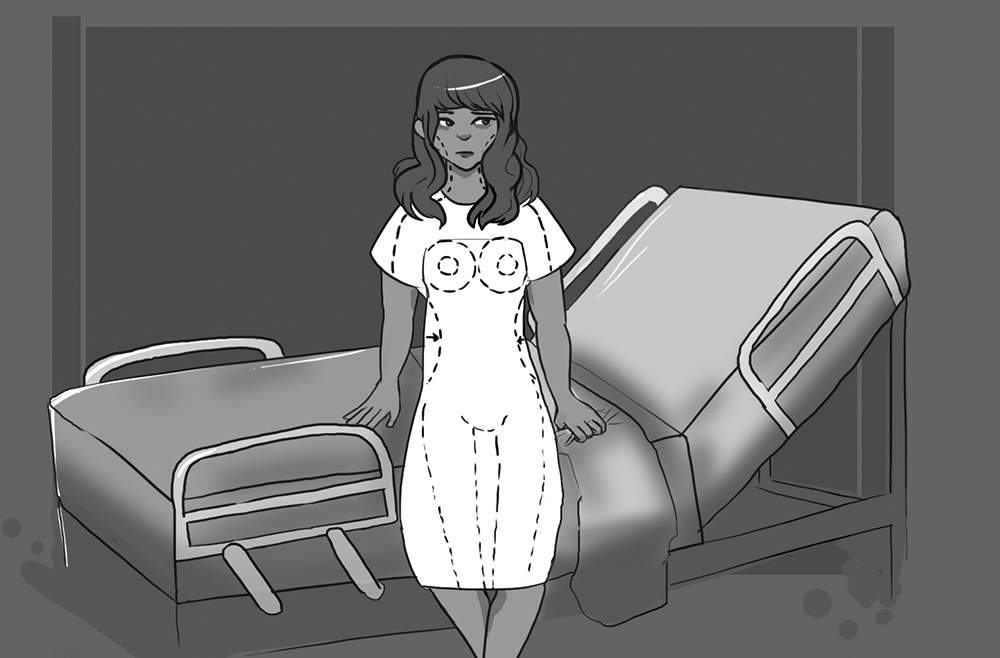Angelica Babiera | Staff Writer
Featured illustration: Women still feel that sexual liberation goes against social norms. | Jasmine Wiradharma
It’s 2017, and criticizing women on their sexual behaviour is still not a thing of the past. Though society has made progress in accepting all kinds of people and their idiosyncrasies, one of the things still being criticized in today’s society is how women express their sexuality.
In the past decade, society has seen many changes, and in particular, a great shift in gender expectations, a pattern that’s been gaining momentum since World War II. Changing parental roles, such as stay-at-home dads, are no longer seen as taboo in many communities. Women getting a traditionally “male” job is no longer seen as unladylike, and the workplace has begun to accommodate this shift in social norms, allowing for extended paternal leaves.
Western societies have appeared to accept and normalize women being open about their sexuality, but in some circles, they believe that women are only behaving like this to get a man’s attention. Mainstream media doesn’t help with socially imposed standards on women regarding their sexuality, however there seems to be a steady change in this portrayal. Shows and movies like Mulan, Law and Order: SVU and The Mindy Project showcase women outside of archetypal roles. These women are portrayed as dynamic and multi-dimensional by going against social norms of docility and lady-likeness.
“We’ve grown to know a certain way of doing things,” says John Mercado, third-year marketing student, expressing that traditional norms fostered through the media and one’s upbringing may be difficult to challenge and break.
This traditional way of thinking has created a stigma around how women should dress and behave. However, when we veer away from those standards, people shame women.
This phenomenon, dubbed slut shaming, is not something that is imposed on women by heterosexual men alone, but also by women. Late last year, singer and actor Selena Gomez was accused of slut shaming during her American Music Awards acceptance speech.
She expressed she would rather not see bodies on Instagram, but instead what is in the heart. There was an outcry from fans and social media users that Gomez was shaming women who were comfortable showcasing their bodies on social media platforms.
This idea is the same for confidence. When a woman is seen as overconfident or comfortable with her own body, she gets shamed. Oftentimes, people see it as something threatening or weird.
“The fact that a woman can love herself and feel confident in herself is intimidating to men […] We don’t need them to make us feel beautiful or empowered, we can do that ourselves. Times have changed [and] embracing our sexuality can be seen as threatening to men,” says Janelle Anastasia Wallen-Charles, second-year English and professional writing student.
“If you’re not secure about your own self as a man, if your masculinity feels threatened by a woman who is more confident than you, more aware of how she looks and is comfortable with herself, then that just means you’re not comfortable with yourself,” says Mercado.
In this way, women and men are placed into boxes, suffocated by standards that do not allow them to be themselves. It stigmatizes everyone’s potential to succeed and to be comfortable with themselves.
Times have changed: women have reproductive rights, financial rights and voting rights, among others. Optimistically speaking, if women in the early 1900s were able to fight for their rights in the United States, then women all over the world can definitely fight for sexual norms to change.


